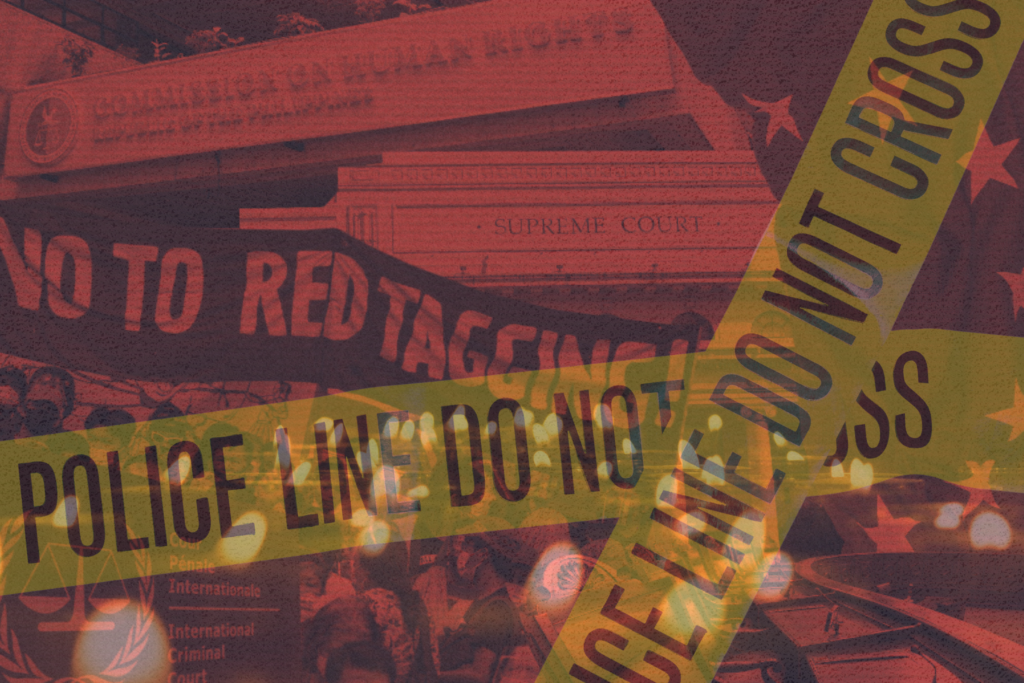Getting ahead: Rappler looks at future of human rights under Marcos regime

CHEERS TO Rappler’s timely and useful report that looked into possible developments in the quest for justice of the victims of the bloody “drug war” of former President Rodrigo Duterte’s regime. The piece raised awareness about current issues and what may happen given past events. The information encourages the public vigilance necessary to ensure government accountability.
Former President Duterte’s “war on drugs” was the singular focus of most of his term of office. Recordings and transcripts of his speeches and news accounts recorded how he encouraged and enabled law enforcement agents to kill as well as to mobilize vigilante killings.
Jodesz Gavilan’s January 6 report reviewed what happened during Duterte’s term, and what could favor the search for justice for the victims of state violence. These could also correct the orientation of law enforcement agencies under Duterte to disregard human rights rather than as an obligation of both the police and military.
Gavilan called attention to five possibilities:
- The resumption of the International Criminal Court (ICC’s) probe
The ICC temporarily paused its investigation in 2021 after the Philippine government requested a “deferral.” However, ICC Prosecutor Kharim Khan later found that despite government claims, only a small number of cases were actually being investigated and what was taking place was a “mere desk review.” Khan then concluded in September 2022 that the deferral request was “unwarranted.” In November 2022, he asked that his office be allowed to resume its probe. Human rights lawyer Krissy Conti said that progress in the ICC’s investigation would send the important message that international accountability mechanisms are not just available and functioning, they are also effective.
- A favorable Supreme Court decision on the constitutionality of Duterte’s “drug war”
Six years have passed since law groups filed petitions in 2017. For Ray Paolo Santiago, a lawyer and Executive Director at the Ateneo Human Rights Center (AHRC), the SC’s decision would firmly establish that a similarly abusive policy cannot be adopted by government in the future.
- Completion of appointments to the Commission on Human Rights (CHR)
An incomplete CHR Commission en banc (CEB) compromises the country’s national human rights institution’s leadership and decision-making. Former CHR Commissioner Karen Gomez-Dumpit said that a complete CEB is important for “democratic checks and balances” and leaving it incomplete is “one of the worst things” a government can do to “weaken” the Commission. Gomez-Dumpit noted that leaving the CEB incomplete for possibly the longest period in its history speaks poorly of the government’s commitment to “human rights promotion and protection.”
- Progress (or lack thereof) in cases filed against state-affiliated “red-taggers”
The Duterte administration used “red-tagging” to stifle dissent. The practice has continued under Marcos— mostly by officials of the National Task Force to End Local Communist Armed Conflict (NTF-ELCAC), a creation of Duterte. Several cases have been filed against the state perpetrators of this life-endangering practice, but it remains to be seen if the courts will act on these cases.
- Non-renewal of the Philippines’ benefits under the European Union’s (EU) Generalized Scheme of Preferences Plus (GSP+).
The EU’s GSP+ is a scheme that “gives special incentives and zero tariffs” for over six thousand Philippine products in the EU market. But it requires the exporting country to uphold a set of “human rights standards.” Some EU Parliament members said that the country may be cut off because of the “climate of impunity” related to the drug killings under Duterte.
Current Trade Secretary Alfredo Pascual defended the human rights situation in the country in October 2022. Pascual urged the EU committee to renew the country’s inclusion on the basis of the current administration’s “changed” approach to the “war on drugs,” as well as other “significant developments.” The GSP+ will expire in 2023 and the EU Commission has yet to decide on the country’s inclusion in the next iteration in 2024.
The in-depth piece also reminded readers that while the new year brings new beginnings, human rights abuses under the Duterte administration should not simply be treated as a thing of the past.
After all, the anti-illegal drugs program continues under the Marcos administration. Media must examine the issues that hounded that program’s past and continue to check its current implementation. Only with relevant information can people keep vigilant watch over the powers now in charge.
Leave a Reply